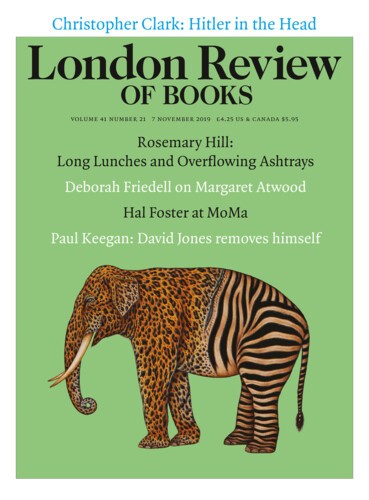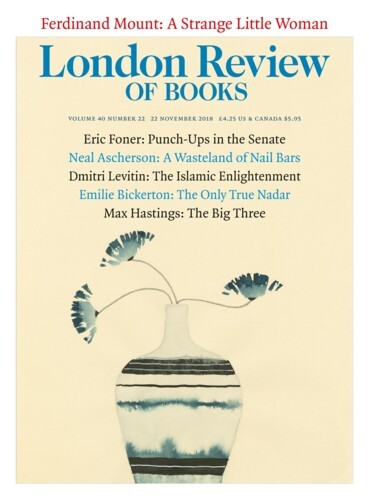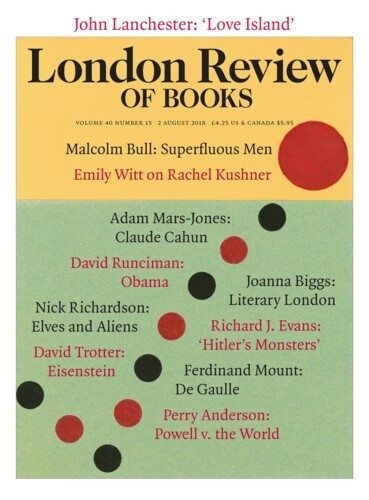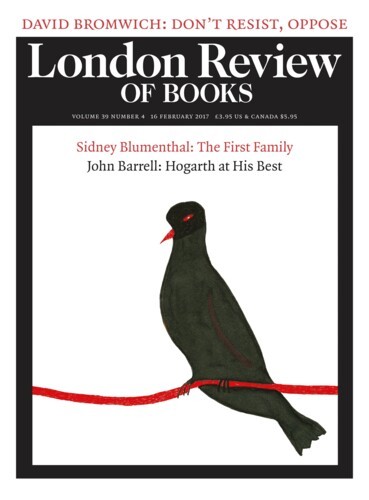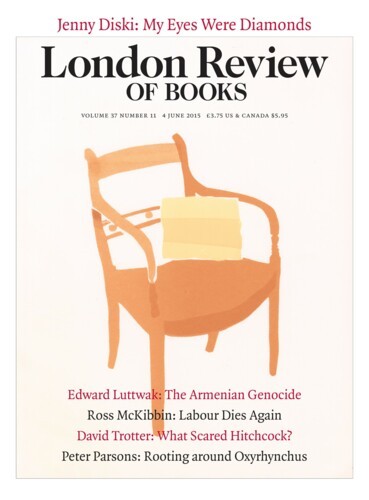Diary: Bearness
David Trotter, 7 November 2019
If there is a god of small things, it could be said to have taken up residence, for a while at least, in a remote valley in the northern highlands of Vietnam. A lush forest canopy spreads evenly up the slopes of the surrounding hills. On the valley floor sits a group of five single-storey concrete sheds with corrugated iron roofs, each opening onto a broad grassy enclosure. Dotted among the...
